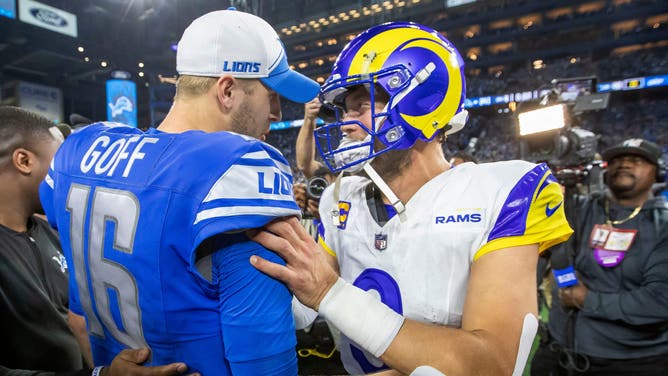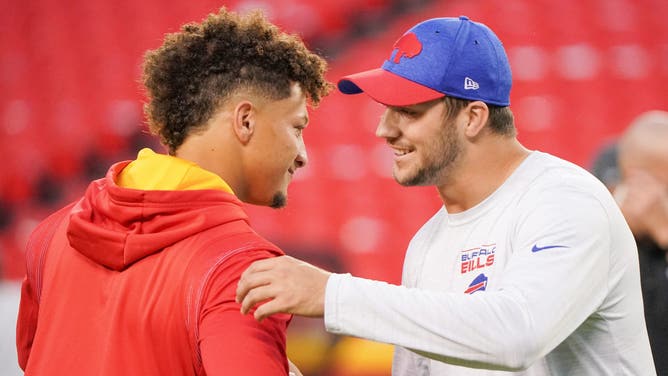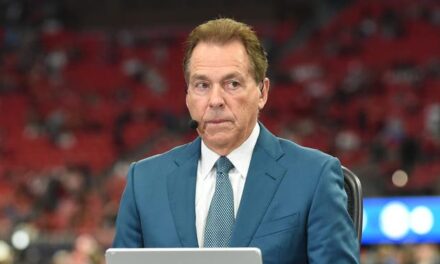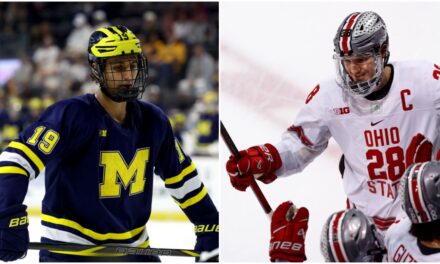We support our Publishers and Content Creators. You can view this story on their website by CLICKING HERE.
The NFL postseason is finally here, so it’s a good time to look at the makeup of the teams that reached the dance. The best place to start is obvious: the quarterbacks.
And, interestingly enough, almost all of them were selected in the first round of the NFL Draft. In fact, there are only two who weren’t: Russell Wilson and Jalen Hurts. And both were still picked in the first three rounds.
It’s easy to forget that Jared Goff was the first pick in the 2016 NFL Draft by the Los Angeles Rams, who then later replaced Goff with Matthew Stafford, the No. 1 pick in the 2009 draft – who also happens to have led the Rams to the playoffs.
It’s actually fascinating that there are three quarterbacks that are former No. 1 overall picks in the NFL Draft and none of them is playing for the team that drafted him. Baker Mayfield is the other, alongside Goff and Stafford, and the Browns took Mayfield with the top pick in the 2018 draft.
The NFC is loaded with highly-drafted quarterbacks who weren’t drafted by the team they are currently leading. Sam Darnold, the No. 3 overall pick in the 2018 draft by the New York Jets, led the Vikings to the postseason. Four of the seven NFC playoff quarterbacks were taken with a top-three pick in the draft by a team other than the one for which they are currently playing.

Detroit Lions quarterback Jared Goff and Los Angeles Rams quarterback Matthew Stafford greet each other after a 2024 NFC playoff game at Ford Field.
(David Reginek/USA TODAY Sports)
That’s quite different from the AFC, where six of the seven quarterbacks were first-round picks, all still playing for their first, and only, NFL team. Plus, the Cincinnati Bengals and Miami Dolphins just barely missed the playoffs. Both teams are led by their first-round picks from the 2020 NFL Draft.
The team closest to reaching the postseason in the NFC, but didn’t, was the Seattle Seahawks. They are led by Geno Smith, another quarterback playing for a franchise other than the one who drafted him.
The Atlanta Falcons also had a chance to make the playoffs in Week 18, and while rookie Michael Penix ultimately took over the starting gig, veteran Kirk Cousins started the majority of the team’s games this season.
It’s interesting, at least to me and possibly no one else, to see the ways each of these teams made it to the playoffs when it comes to their starting quarterback. The dichotomy between the NFC and AFC is quite stark.

Kansas City Chiefs quarterback Patrick Mahomes talks with Buffalo Bills quarterback Josh Allen before warm-ups at GEHA Field at Arrowhead Stadium.
(Denny Medley/Imagn Images)
The average age of the starting playoff quarterbacks in the NFC is 28 years old. For the AFC, it’s 27. However, that number is also thrown off a bit by 36-year-old Russell Wilson, the only AFC playoff QB who is over 30 years old.
If the Bengals had somehow made the playoffs instead of the Steelers, this would be even more wild. All the AFC quarterbacks would be former first-round picks and the average age would be 26.
This is why the AFC is so much better than the NFC right now. There are so many more young, talented quarterbacks in the conference.
That being said, none of it really matters anymore. This is now a tournament and any team, meaning any quarterback, could win.
That’s what makes the NFL postseason so awesome.

 Conservative
Conservative  Search
Search Trending
Trending Current News
Current News 





